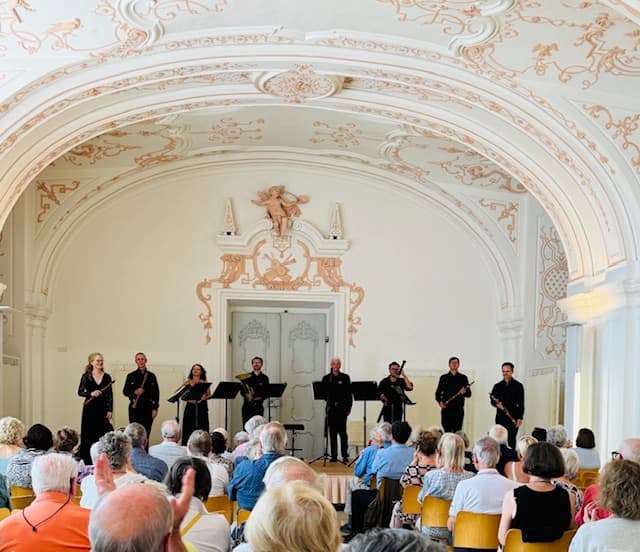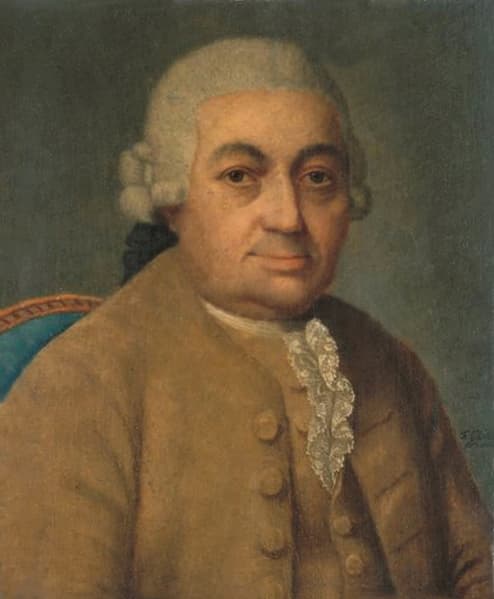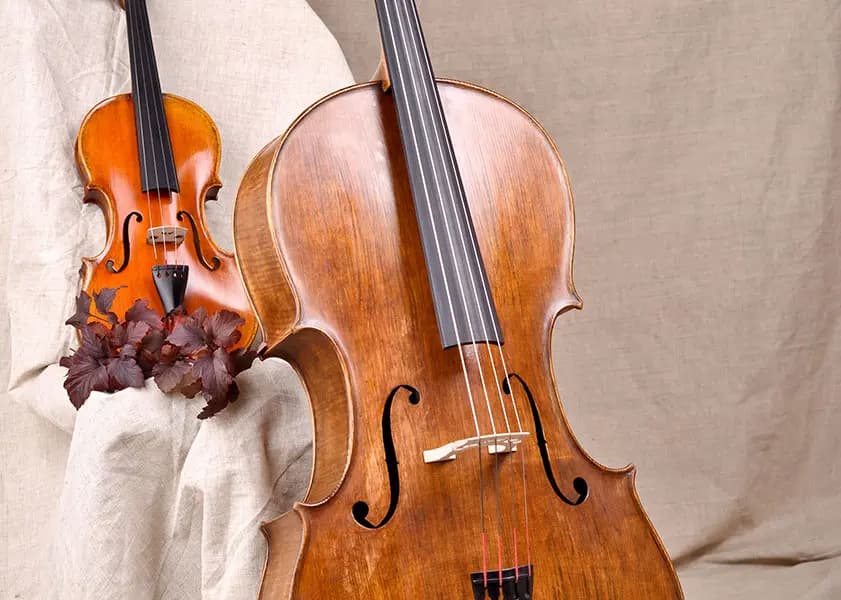Many classical music lovers know the story of composer Robert Schumann and his pianist wife Clara Wieck: how they fell in love as young people, how Clara’s tyrannical father discouraged the match, and how they finally got married in 1840, becoming personal and professional partners until Robert died.
However, Robert Schumann was nine years older than Clara, and he had multiple relationships before he fell in love with his wife.
One of the most serious was with a pianist named Ernestine von Fricken. Today we’re looking at her tragic and fascinating life story…and how Robert Schumann jilted her.
Ernestine von Fricken’s Birth and Family
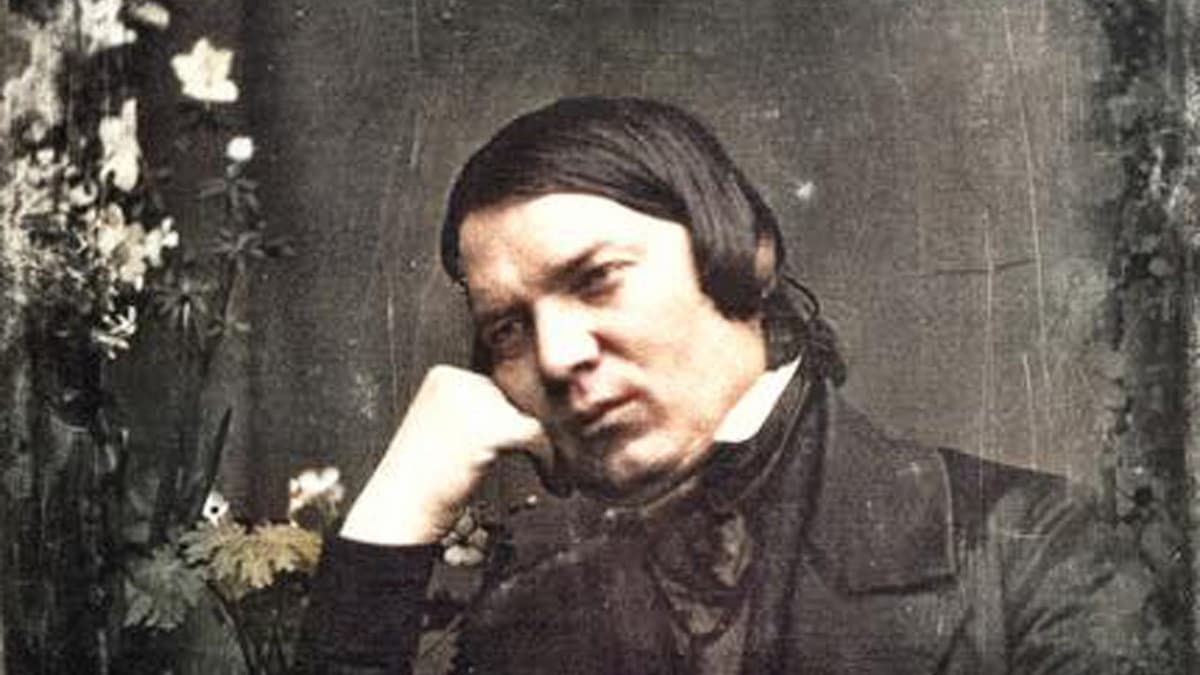
Robert Schumann, 1850 © pianolit.com
Ernestine von Fricken was born on 7 September 1816 near the town of Aš (“Asch” in German) in the present-day Czech Republic.
She was the illegitimate daughter of wire manufacturer Erdmann Lindauer and Countess Caroline Ernestine Louise von Zedtwitz.
When Ernestine was born, it was decided that the countess’s childless sister and her husband, a landowner named Ferdinand Ignaz Freiherr von Fricken, should adopt Ernestine, so they did.
Ferdinand von Fricken was very interested in music. He was a composer, songwriter, and talented flute player. Despite the fact that his wife was a countess, he wasn’t particularly wealthy.
Ernestine von Fricken’s Childhood
To his credit, Ferdinand von Fricken recognized that his adopted daughter was very musically talented, and he ensured that she got training.
By the time she was eight years old, in 1824, she was playing keyboard works by Mozart, Dussek, Clementi, and other renowned eighteenth-century composers.
Historians don’t know the details, but she apparently attended a Bavarian school away from home, where she received music training.
By the age of seventeen, she was playing virtuoso showpieces by Kalkbrenner, and Moscheles. Her stepfather believed that she should study with Johann Nepomuk Hummel, who had studied with Mozart, but the family couldn’t afford it.
Enter the Wiecks
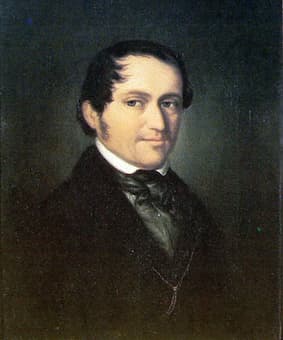
Friedrich Wieck
In the spring of 1834, when Ernestine was seventeen, she and her father attended a concert by the piano prodigy Clara Wieck in Plauen, Germany, near Asch.
Ferdinand von Fricken reached out to Clara’s father and teacher, Friedrich Wieck, and asked him if he could take Ernestine on as a pupil.
Accordingly, she moved to Leipzig and roomed with the Wieck family for a few months. Her time there began at Easter 1834 and ended in September.
She flourished under Wieck’s tutelage and in the musical circle that had grown up around his studio. She spent time with Clara Wieck as well as Robert Schumann, another Wieck pupil.
One writer wrote of her:
Her touch is full and powerful with a very delicate body, her playing is secure and well accentuated; and in terms of overcoming mechanical difficulties, perhaps not many can be compared to her, especially since another quality of quickly grasping the most difficult compositions and quickly reciting them from memory is not given to every virtuoso. It’s a shame that her external living conditions have so far kept her tied to an area that offers no musical interest at all.
Relationship with Robert Schumann
That spring, when she was seventeen, she and twenty-four-year-old Robert Schumann fell in love with each other.
Things apparently moved quickly, in part encouraged by Friedrich Wieck because he wanted to keep Robert away from Clara.
In July, three months after meeting Ernestine, Robert wrote to his mother that he’d fallen in love with “Ernestine, daughter of a rich Bohemian Baron von Fricken, her mother a Countess Zedtwitz, a wonderfully pure, childlike soul, tender and sensible, with the deepest love for me and everything artistic, extraordinarily musical – in short, exactly how I would like my wife to be – and I say to you, my good mother, in your ear: if the future asked me the question, who would you choose – I would firmly answer: this one.”
The two musicians became secretly engaged in August.
The Music Inspired by Her
Schumann dedicated his Allegro, op. 8 to Ernestine. The Allegro had been composed in 1831 but was only published in 1835.
Robert Schumann, Allegro op. 8 (1831)
He also wove her identity into his piano suite Carnaval by spelling out the name of her hometown in various musical notations.
Carnaval was written during their courtship and engagement. He wrote to a friend, “I have just discovered that ASCH is a very musical city name, that the same letters are in my name.”
Tiffany Poon / Schumann’s Carnaval Op. 9
Schumann also tried to get in the good graces of her composer father by using one of his themes in his Symphonic Etudes, op. 13, and dedicating the work to him.
Yuja Wang plays Schumann : Symphonic Etudes, Opus 13
Why The Relationship Unraveled
With hindsight, it probably wasn’t a great sign that Schumann’s first description of his future fiancee included mention of her wealth. Once he found out that the family was in actuality quite poor, the dynamics of the relationship changed.
There were also legal difficulties. Her parents had never legally adopted Ernestine, which affected legal issues surrounding her potential marriage. Frederick tried to straighten things out by going through the appropriate legal channels. He officially adopted Ernestine in December 1834…but only on the condition that her future husband not inherit anything.
It was too little, too late. Schumann’s love was rapidly cooling. In fact, awkwardly, he was kissing Clara before he’d fully broken up with Ernestine.
In February 1838, he tried explaining the situation to Clara:
It was in the winter of 1834… When…I began to think about how it could end, when I found out about her poverty and, no matter how hard-working I was, I only achieved a little of myself, it began to weigh on me like shackles – I saw no goal, no help – I also heard about the unfortunate family complications in which Ernestine found herself, and I resented her for keeping it secret from me for so long. All this taken together – damn me – I must confess, I grew colder; my artistic career seemed crazy to me; the image to which I clung for salvation now haunted me in my dreams like a ghost; I should now work like a craftsman for my daily bread; Ernestine couldn’t earn anything; I talked to my mother about it, and we agreed.
Despite all this, Robert only moved to break off the engagement with Ernestine in the summer of 1835.
Life After Robert Schumann
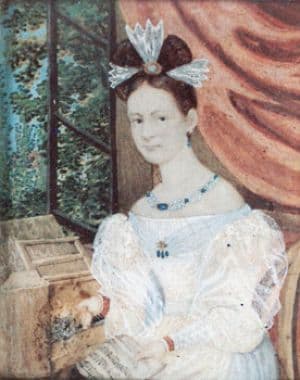
Ernestine von Fricken
After the breakup, Ernestine didn’t return home at first. Instead, she spent some time with friends at Buldern Castle near Münster, Germany.
In 1900, the magazine The Etude published English translations of letters purportedly written by Ernestine. (They’re unsourced, so take them with a grain of salt.)
I loved [Schumann] very, very much, as perhaps I shall never love again. Since I left Leipzig many men have sought my love; but never again can I feel in the least as I felt for Schumann… I was promised to him, quite definitely, though none of you thought it… Schumann once loved me dearly, that I know for certain. Once he was cross to me for a long time, and this hurt me deeply… How many tears have I wept to-day over my hard fate! Not exactly about Schumann, no: he has gone down a great deal in my eyes… Oh if I had only never met this Schumann! … He certainly treated me very badly, but I have forgiven him all he has done to me…
In 1837, she went back to Asch.
On 5 November 1838, when she was twenty-two, she married Count Wilhelm von Zedtwitz, Lord of Asch-Schönbach. Tragically, their marriage didn’t even last a year, as he died in July of the following year.
Widowhood
Seeking another change of scenery after her bereavement, she moved to Vienna, but after two years, she returned to Asch and threw herself once again into her music studies.
She developed a Chopin specialty. One writer wrote after her homecoming:
Since then, she has lived there entirely for the noble art and the strict style, but with a great preference for Chopin’s better piano works, which, like almost all other good musical works, she performs from memory with strength and expression.
This is an interesting tidbit, as Clara Wieck Schumann was the pianist who jump-started the practice of playing from memory in the late 1830s. (According to Clara’s stepsister, Friedrich Wieck advocated for playing by memory.) Ernestine was one of the first pianists to embrace this trend, which is still going strong today.
The last thing we know about Ernestine is that she played at benefit concerts toward the end of her life. But in the end, she never seems to have been given the chance to fulfill her full artistic potential.
Ernestine von Fricken von Zedtwitz died of typhus in November 1844 at the age of twenty-eight.
Legacy
Robert Schumann didn’t completely forget Ernestine. In 1841, he dedicated the three songs from his op. 31 to her: a hint that she continued to mean something to him, even after their breakup.
For more of the best in classical music, sign up for our E-Newsletter


